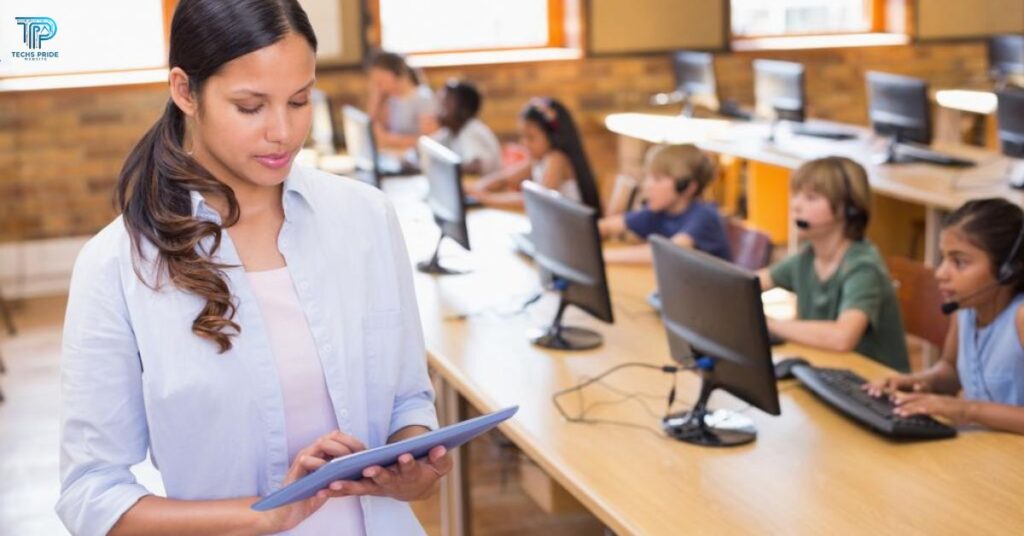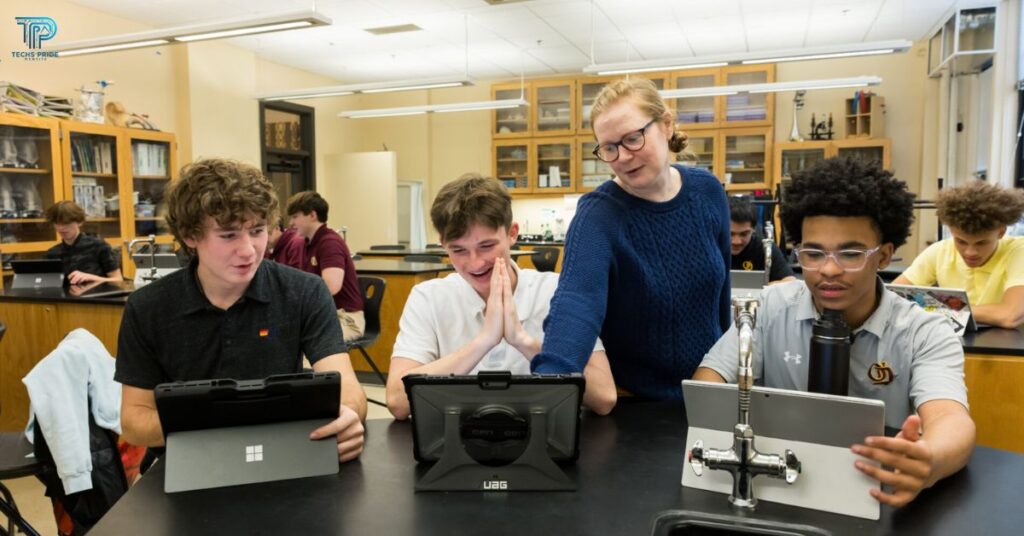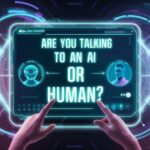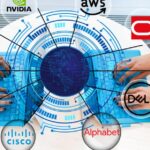The Future of Education: Exploring the Role of Technology in Learning and Development encapsulates a pivotal shift in the educational landscape emphasizing the transformative impact of technology.
In an era where innovation is ubiquitous technology emerges as a catalyst for redefining traditional paradigms ushering in dynamic student-centered learning environments.
From interactive digital resources to personalized learning platforms technology empowers educators to tailor instructional approaches to individual student needs fostering engagement collaboration and critical thinking skills essential for success in the 21st century.
How Technology will transform the education industry
Technology is poised to revolutionize the education industry fundamentally reshaping how knowledge is imparted and acquired. With advancements in artificial intelligence augmented reality and online learning platforms the future of education promises greater accessibility personalization and effectiveness.
One significant transformation lies in the shift towards personalized learning experiences. Through adaptive learning algorithms and data analytics technology can tailor educational content and pacing to suit individual student needs ensuring optimal comprehension and retention.
Technology facilitates the democratization of education by breaking down geographical barriers and providing access to high-quality educational resources globally.
Online learning platforms offer a wealth of courses and materials that transcend traditional classroom limitations empowering learners to pursue their academic interests regardless of their location or socioeconomic background.
Like This Post: Embarking on a Cosmic Journey: Unraveling the Wonders of Snapchat Planets
Benefits of Technology in Learning and Development
Technology in learning and development offers a myriad of benefits that contribute to the enhancement of educational experiences and outcomes:
Access to Information and Resources
Technology provides unparalleled access to a vast array of information and educational resources. Through the internet digital libraries and online databases learners can explore diverse topics.
Access up-to-date materials from anywhere at any time. This democratization of information empowers individuals to pursue self-directed learning and expand their knowledge horizons.
Personalized Learning Experiences
Technology enabled personalized learning experiences tailored to individual learning styles, preferences and abilities. Adaptive learning platforms intelligent tutoring systems and educational apps analyze learner data to deliver customized content and adaptive feedback.
This personalized approach not only optimizes learning outcomes but also fosters a deeper understanding and retention of concepts.
Collaboration and Communication Opportunities
Technology facilitates collaboration and communication among learners educators and experts transcending geographical boundaries.
Online collaboration tools discussion forums and video conferencing platforms enable seamless communication and teamwork promoting peer-to-peer learning and knowledge exchange.
Enhanced Engagement and Motivation
Technology enhances engagement and motivation by leveraging interactive multimedia gamification and immersive learning experiences. Educational games simulations and virtual reality applications captivate learners’ interest and make learning more enjoyable and interactive.
Personalized feedback and progress tracking foster a sense of accomplishment and intrinsic motivation encouraging learners to actively participate and persist in their educational pursuits.
Advantages of Technology in Education

The advantages of integrating technology into education are multifaceted offering a wide range of benefits that enhance the learning experience and prepare students for success in the digital age:
Putting Students’ Knowledge into Action
Technology enables students to apply theoretical knowledge to real-world scenarios fostering practical skills and experiential learning.
Through interactive simulations virtual laboratories and project-based assignments students can explore complex concepts and develop problem-solving abilities translating theory into practice.
Sharpening Students’ Critical Thinking
Technology stimulates critical thinking skills by engaging students in dynamic interactive learning experiences. Educational software multimedia resources and online discussions prompt students to analyze evaluate and synthesize information critically.
By challenging assumptions and examining multiple perspectives technology cultivates higher-order thinking skills essential for academic success and lifelong learning.
Increased Collaboration
Technology facilitates collaboration among students educators and experts breaking down barriers to communication and teamwork. Collaborative platforms cloud-based tools.
Virtual classrooms enable seamless sharing of ideas resources and feedback fostering a culture of collaboration and collective learning. By working collaboratively on projects and solving problems together students develop interpersonal skills and learn to appreciate diverse perspectives.
Better Communication
Technology enhances communication between students and educators enabling efficient and effective exchange of information and feedback. Online communication tools email and instant messaging platforms provide channels for clear communication.
Timely communication regardless of physical distance. Additionally multimedia presentations and digital storytelling tools empower students to communicate their ideas creatively and persuasively.
Personalized Learning Opportunities
Technology offers personalized learning opportunities tailored to individual student needs, preferences and abilities.
Adaptive learning algorithms intelligent tutoring systems and educational apps deliver customized content and adaptive feedback based on student performance and progress.
The Impact of Technology Learning

- Democratization of Education: Technology has democratized learning by providing individuals worldwide
- Enhanced Effectiveness and Efficiency: Technology leverages adaptive learning algorithms and personalized learning platforms to tailor educational experiences to individual learner needs.
- Facilitated Collaboration and Communication: Virtual classrooms online discussion forums.
- Enriched Learning Experiences: Immersive and interactive learning modalities such as educational games simulations virtual reality.
Frequently Asked Questions
How does technology contribute to personalized learning experiences?
Technology enables personalized learning experiences by leveraging adaptive learning algorithms and data analytics. These tools analyze individual learner data to tailor educational content pacing.
What role does technology play in fostering collaboration and communication in education?
Technology facilitates collaboration and communication among students educators and experts through virtual classrooms online discussion forums and collaborative tools.
How does technology enrich learning experiences beyond traditional methods?
Technology enhances learning experiences through immersive and interactive modalities such as educational games, simulations virtual reality and augmented reality.
What are the potential challenges of integrating technology into education?
Some potential challenges of integrating technology into education include issues related to digital equity and access data privacy and security concerns and the need for educator training and support.
How can educators and institutions prepare for the future of education driven by technology?
Educators and institutions can prepare for the future of education by investing in professional development and training programs to enhance digital literacy and teaching skills.
Conclusion
The future of education is intricately intertwined with the role of technology in learning and development. As we continue to navigate the complexities of a rapidly evolving digital landscape technology emerges as a powerful catalyst for transformation within educational practices and paradigms.
From personalized learning experiences and enhanced collaboration to immersive learning modalities and enriched educational resources technology offers unprecedented opportunities to redefine how knowledge is acquired, shared and applied.

I’m a tech writer specializing in explaining complex software and hardware topics clearly. Passionate about making technology accessible through straightforward, engaging writing.







